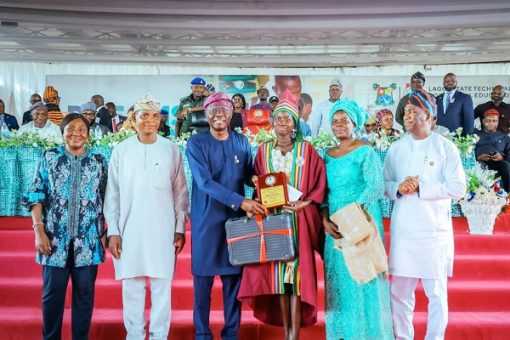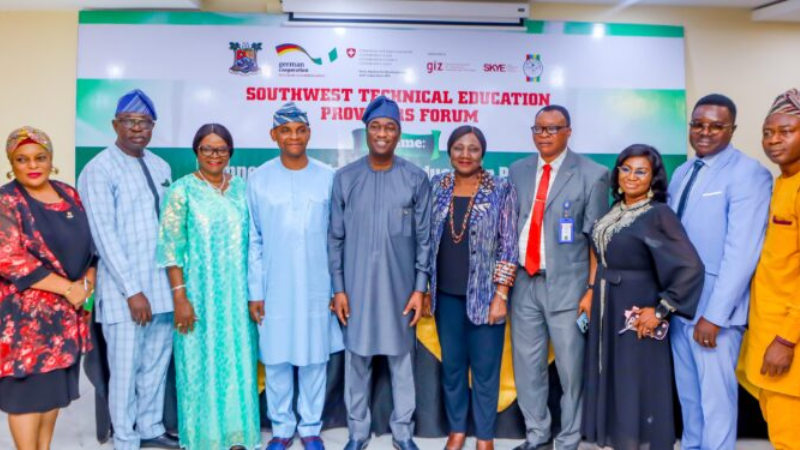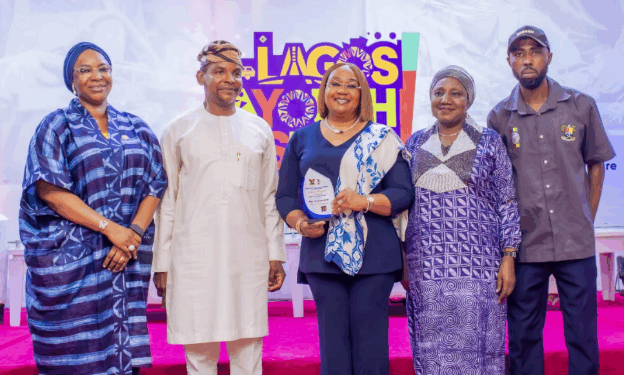In a milestone announcement timed for this year’s Youth Skills Day, the Lagos State Government has approved the establishment of five additional technical colleges, increasing the total from five to ten. This bold move, aimed at reinforcing vocational education across all five divisions of the state, underscores a renewed commitment to bridging the youth unemployment gap while equipping young Lagosians with indispensable technical and practical skills.
Table of Contents

Youth Skills Day 2025: A Turning Point for Vocational Education
Held under the theme “Equipping Tomorrow’s Leaders with Skills for a Brighter Future,” this year’s Youth Skills Day celebration brought together educators, students, entrepreneurs, and government officials at Ikeja. Amid inspiring speeches, engaging panel discussions, and student-led demonstrations, the announcement about the technical college expansion was the highlight—capturing both the spotlight and the aspirations of Lagos’s burgeoning vocational sector.
Commissioner for Basic and Secondary Education, Mr Tolani Alli‑Balogun, revealed:
“We met with the governor, who said creating more technical colleges to the existing five was overdue. No nation has ever developed without input from technical colleges.”
Why Ten Technical Colleges Matter
1. Comprehensive Coverage for Five Divisions
Each of Lagos’s five divisions—Ikorodu, Ikeja, Badagry, Lagos Island, and Epe—will now boast two technical colleges, a strategic expansion for regional inclusivity.
2. Vocational Pathways That Deliver
Technical education provides an outlet for students not pursuing university degrees, offering job-ready training in fields like plumbing, carpentry, welding, and digital fabrication—skills that remain in high demand.
3. Strengthening the Employment Pipeline
By producing graduates equipped for trade or tech-related jobs, these colleges support youth employability, reduce dependency on white-collar roles, and stimulate small and medium-sized entrepreneurial ventures.
4. Catalysing Regional Economic Development
Local industries—from construction and manufacturing to creative arts—stand to benefit from a robust supply of trained technicians and artisans. This supports broader economic growth and community development.

Voices from Stakeholders
An Entrepreneur’s Perspective
Speaking at the breakout session, furniture-maker and entrepreneur Mrs Feyisola Abiru celebrated the initiative, emphasising the pivotal role of technical colleges in skill acquisition and productivity enhancement:
“The youth are the future of the country, and the more we focus on developing their skills, the more we increase the productivity of the country… the quality of our products will be enhanced.”
Her remarks underscored how vocational training empowers youth with practical know-how, enabling them to break into competitive trades and foster innovation.
LASTVEB’s Take on Skills and Community Impact
Mrs Ronke Azeez, Executive Secretary of the Lagos State Vocational Education Board (LASTVEB), emphasised that Youth Skills Day aligns with the UN’s World Youth Skills Day on July 15. She highlighted how the state’s technical college students spearhead community service projects—repairing public infrastructure, refurbishing local spaces, and offering free services using their skills
Azeez pointed out that Lagos’s youth are “very savvy… in tune with what is going on in their environment”, harnessing diverse technical skills to stay competitive in today’s economy.
Catalysts for Mobilising Technical Education
Senior Special Assistant to the Governor on Technical Education, Mr Omotola Giwa‑Moore, reiterated that Youth Skills Day aims to shift perceptions from the conventional white-collar ideal to one embracing vocational self-reliance. He emphasised that awareness-building—via debates, workshops, and relatable testimonies—can inspire youth to pursue technical fields earnestly.
Dr Saheed Mosadoluwa, a real estate entrepreneur and former bricklayer, shared his journey from manual labour to business success, urging youths to choose skill acquisition over social vices:
“Shun all forms of social vices and learn a skill to become employer of labour and contribute meaningfully to the development of the country.”
Addressing Challenges and Next Steps
While optimism prevails, officials warned that scaling technical education requires addressing persistent barriers.
Parental and Community Awareness
Commissioner Alli‑Balogun stressed that many parents are uninformed about vocational education’s value. He urged engagement with local governments, community development associations (CDAs), and grassroots leaders to shift this perspective.
Infrastructure and Digital Equity
Mrs Azeez raised caution around inadequate digital infrastructure—including reliable internet and modern learning equipment—which remains a hurdle for effective technical training.
Funding and Resource Allocation
Expanding to ten colleges calls for substantial funding—covering land, construction, workshops, tooling, staffing, and maintenance. Whether through state funding, federal grants, private partnerships, or international donor support, the specifics have yet to be detailed.
Curriculum Relevance and Industry Partnerships
For students to gain employment or start businesses immediately after graduation, programs must stay current with industry standards. Collaboration with industries and bodies like the Industrial Training Fund (ITF)—Nigeria’s key skills development agency—can ensure curriculum relevance.
Quantifying Lagos’s Vocational Opportunity
– Youth Joblessness: Youth unemployment in Nigeria exceeds 30%, driven largely by a mismatch between job market demands and formal education outputs (typically university degrees).
– Hands-on Competence: Vocational graduates in trades and tech fields are increasingly favoured, given the growing demand for skilled labour in various infrastructural and technological industries.
– Economic Multiplier: Technical colleges not only educate—they reinvest in communities by enabling graduates to start small businesses, stabilise local economies, and reduce social dependency.
Looking Ahead: From Blueprint to Impact
- Site Selection & Timelines
The government plans to allocate one new college per division. Timelines for construction, staffing, and student enrollment announcements will follow council-level approval. - Teacher Recruitment & Training
Qualified technical educators are scarce. To attract skilled mentors, the state may need to offer competitive pay, continuous training, and partnerships with federal agencies. - Industry Integration
Forge apprenticeships and internship pipelines with manufacturing houses, tech hubs, and vocational NGOs to give students real-world training and post-graduation employment tracks. - Community Outreach Programs
Intensify campaigns—town halls, PTA meetings, community broadcasts—to elevate awareness about the benefits of vocational education. - Performance Monitoring
Key metrics like enrollment figures, graduation rates, job-placement statistics, and business launch rates among alumni should be tracked to assess impact and guide future adjustments.
Voices from Lagos’s Technical Colleges
Currently, Lagos hosts five state-run technical institutions in:
- Ikorodu
- Ikotun
- Epe–Odomola
- Ado‑Soba
- Agidingbi
These schools compete annually in debates, community projects, and skill showcases. As they await the younger batch of institutions, their leadership is excited about:
- Healthy Academic Rivalry: More colleges foster competition, creativity, and excellence.
- Expanded Access: Doubling the number of colleges means more Lagos youth can pursue vocational paths without long commutes.
- Diverse Technical Offerings: The new colleges can diversify into areas like mechatronics, renewable energy, digital skills, and automotive technology.

Global and Local Resonance
Setting up ten technical colleges fits within both the UN’s Global Education Agenda—which encourages Technical and Vocational Education and Training (TVET)—and within Nigeria’s National Skills Strategy that targets skills-ready youth by 2030.
The expansion also echoes the Industrial Training Fund’s mission to enhance technical capacity across Nigeria
Regionally, Lagos is following the example of other progressive states championing vocational education to combat youth unemployment.
Conclusion
Lagos State’s decision to double its technical colleges from five to ten marks a forward-thinking stride in youth empowerment. By decentralising vocational education, fostering practical skills, and encouraging local entrepreneurship, the government is not just building infrastructure—it’s investing in futures.
Whether aspiring engineers, woodworkers, IT specialists, or artisans, young Lagosians will have more options to forge impactful careers. As these colleges take shape, the catalyst they’ve become at Youth Skills Day may well define the next phase of Lagos’s human capital revolution.
Join Our Social Media Channels:
WhatsApp: NaijaEyes
Facebook: NaijaEyes
Twitter: NaijaEyes
Instagram: NaijaEyes
TikTok: NaijaEyes
READ THE LATEST EDUCATION NEWS













![Tragic Incident: Fans of Seyi Vibez Die in Fatal Accident After Electrifying Lagos Concert [VIDEO] Seyi Vibez](https://naijaeyesblog.com/wp-content/uploads/2025/08/Seyi-Vibez-180x135.avif)

























